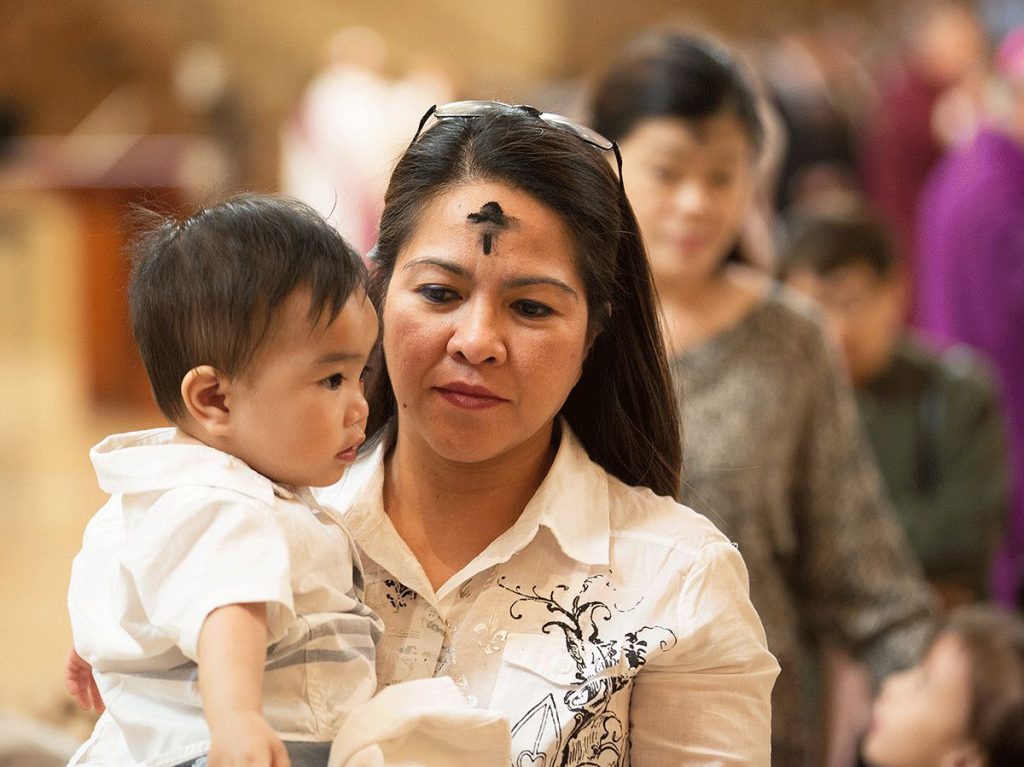Lent comes early this year. Ash Wednesday is less than a week away, Feb. 10.
As we enter into this season of conversion, we know that our whole Christian life is a journey of conversion, a journey to an ever-deeper faith in Jesus who shows us the face of God.
Faith in Jesus is not some secret wisdom, a knowledge that only a select few can achieve. Jesus said God reveals himself — not to the wise and the learned, but to those who are like children.
Our faith is simple and it is beautiful: We believe that God, in the mystery of his love for every person, sent his Son into our world for our salvation — to share in our humanity and, through his death on the cross and his rising from the dead, to show us the way to new life as children of God in his kingdom.
This is the beautiful truth we meditate on during Lent and Easter.
Conversion means responding to the call of Jesus to change our way of thinking and our ways of seeing, to change the direction of our lives so that we are following him — believing that only he can show us the Father and truth about our lives.
Conversion means entrusting ourselves more and more to the Father, our minds and hearts renewed in Jesus Christ, seeking the things of heaven. More and more we want what God wants; more and more what we seek is only to know and realize his will for our lives and for history.
Prayer is the life-breath of our personal relationship with God, the expression of our desire for God and his desire for us.
So often we are tempted to treat prayer as a “problem” or a chore, a duty we feel guilty if we don’t fulfill. Some of us don’t make time in our day to pray. We tell ourselves we are too busy, we have too much to do.
But no matter who we are, no matter where we are at in our prayer life and our journey of conversion — all of us feel the call to prayer, the call to a deeper encounter with the living God.
So in these weeks of Lent, I want to write in a practical way about prayer. If you are not devoting enough time to prayer, or if you have stopped praying because you don’t get anything out of it, I hope you will make a new beginning during this Lent.
There are many ways to pray, and many different prayers we can say.
But the easiest way to begin to pray is to just talk to God — place yourself in his presence and start speaking to him. You don’t need a system or a method. Just tell him, as St. Paul did, “We do not know how to pray.” Ask Jesus, as his disciples always have, “Lord, teach us to pray.”
Jesus taught us to talk to God with the words of the “Our Father.” But he also showed us, at every stage in his life, what it looks like to pray as a child of God.
Still today, we can learn to pray by watching Jesus pray. And what we learn from watching Jesus is that prayer is a heart-to-heart conversation with our Father who loves us.
So talk to God — he is your Father. Talk to him in your mind, speak to him from your heart. God is totally interested in your life. In his love for you, he wants to hear about your joys and sorrows, the things that disturb you, people and situations that frustrate you. Nothing is too small to bring to God.
Ask your Father for everything you need; ask him to help your loved ones and others who need his help. Thank him for his love and bless him for his goodness to you. Adore him and praise him.
God is waiting for us to come to him in prayer. He wants us to desire him, to seek him, to ask him to open up his heart and reveal his plan for our life.
Prayer is his gift, God’s promise and our privilege. It is an invitation to intimacy with our Creator, the Lord of heaven and earth. There is a beautiful line in the Catechism: “Whether we realize it or not, prayer is the encounter of God’s thirst with ours. God thirsts that we may thirst for him.”
So as we begin this Lenten season of conversion, let’s make this our prayer for one another — that this Lent we may all make a new beginning in prayer.
And let us ask our Blessed Mother Mary to help us to learn to talk our Father as her Son did — honestly and sincerely, lifting our hearts and minds and voices to God; speaking to him with love, confidence and hope.
You can follow Archbishop Gomez daily via Facebook, Twitter and Instagram.

